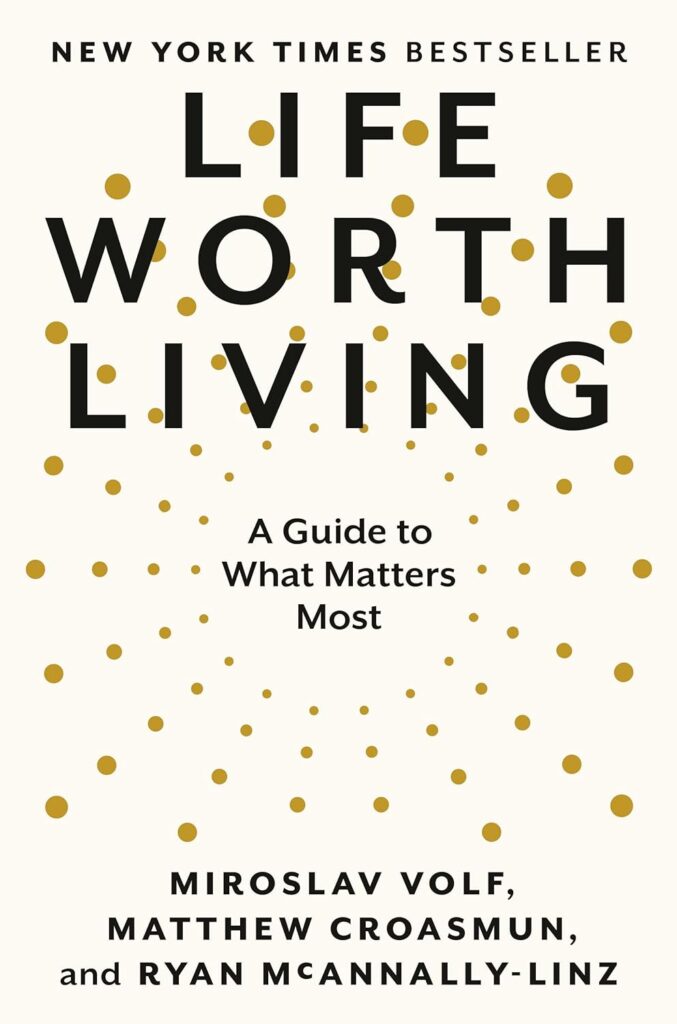In my car I keep a “multi-tool,” a single gadget with two kinds of screwdrivers, pliers, a knife, scissors, and various other items. The pieces are not as good as real tools, but I have access to a lot of options with one gizmo.
 At first I thought the book Life Worth Living: A Guide to What Matters Most was a multi-tool for spirituality and depth: its value in the variety rather than the quality. On reading the book, though, I found it to be a collection of quality tools, not poor substitutes for them. The authors don’t try to give the one ‘tip’ to find happiness. In fact, the chapter “This Book Might Wreck Your Life” warns of its serious challenge to comfortable ways of thinking and being. It describes experiences of painful transformation by the Buddha, the apostle Peter, and Ida B. Wells. The authors say of them, “What their stories share is an experience that put the shape of their lives into question. What had been normal and assumed became questionable. Something—maybe everything—had to change.”
At first I thought the book Life Worth Living: A Guide to What Matters Most was a multi-tool for spirituality and depth: its value in the variety rather than the quality. On reading the book, though, I found it to be a collection of quality tools, not poor substitutes for them. The authors don’t try to give the one ‘tip’ to find happiness. In fact, the chapter “This Book Might Wreck Your Life” warns of its serious challenge to comfortable ways of thinking and being. It describes experiences of painful transformation by the Buddha, the apostle Peter, and Ida B. Wells. The authors say of them, “What their stories share is an experience that put the shape of their lives into question. What had been normal and assumed became questionable. Something—maybe everything—had to change.”
Life Worth Living offers effective, lasting tools to examine life and its priorities. It describes Ignatian disciplines, Buddhism, Alcoholics Anonymous, and other sources as helpful in examining and deepening our existence. It concludes that each of us can do the difficult work of self-examination through such familiar tools as meditation, ritual, and community.
This odd but helpful book speaks of four levels of living: reflexive (or autopilot); effectiveness, self-awareness; and self-transcendence. Comfort in life can’t be equated to its level of meaning or value. The authors say of the “effectiveness” level of contemplation, “There’s also a helpful ruthlessness to reflection in this layer.” The book offers Albert Speer and Oscar Wilde as examples of living the unexamined, seemingly successful life. The life of the Nazi architect teaches us, “It is possible to succeed in our highest aspirations and yet fail as human beings.” Of Oscar Wilde, the book says, “…in getting what he wanted, he had betrayed his own highest ideals. He had failed to live in correspondence with his own best understanding of what kind of human being it was truly worth being.”
To me, those ideas are the core of Life Worth Living: the discomfort and importance of going deeper to determine if we are efficiently getting something we should actually want. It is a challenge for any person who wants to live on a different level: one in which God guides us into the places we are specifically called to be. To be honest, I’m a bit scared of taking Life Worth Living to heart, of the idea of “helpful ruthlessness.” It might after all, well be the kind of tool that will ‘wreck my life.’
But it contains enough quality tools that it might also allow me to identify, deepen, and make possible the life I want to live in God.
The Very Rev. Carol Mead is rector of St. Peter’s by-the-Lake/Brandon and serves as dean of the Central Convocation.